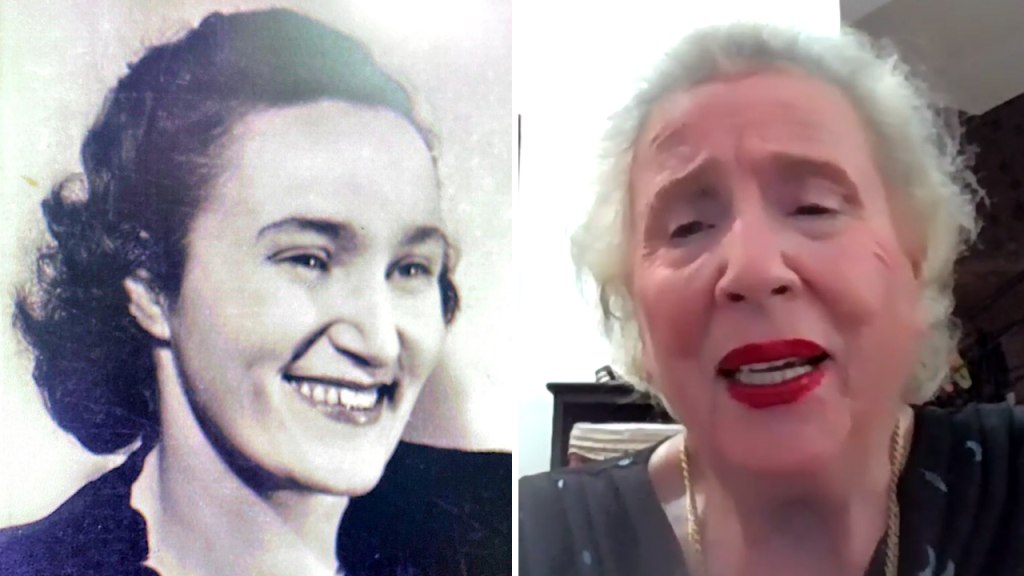Marianne Miller, a Holocaust survivor, carries the weight of a horrific past as she prepares to address the United Nations General Assembly. Born in Budapest during the tumultuous years of World War II, Miller’s early life was marred by the pervasive fear and persecution of the Holocaust. She represents the dwindling number of survivors who can offer firsthand accounts of this dark chapter in human history. Her presence at the UN serves as a stark reminder of the atrocities committed just 80 years ago, a period Miller characterizes as the “most horrifying, ugliest, most terrible, most unbelievable part of human history.” Her message, distilled from the crucible of unimaginable suffering, is simple yet profound: “Don’t hate, love.” This plea echoes the desperate hope for a world free from the kind of hatred that fueled the genocide she endured. Miller’s story is a testament to the resilience of the human spirit and the enduring power of hope in the face of unimaginable adversity.
One frigid December night in 1944, amidst the chaos and terror of Nazi-occupied Hungary, Miller’s mother orchestrated a daring escape that defied the odds. A silent procession of mothers clutching their children marched towards a railway station, their destination the infamous Auschwitz concentration camp. Miller, held securely in her mother’s arms, was unknowingly on the precipice of death. In a moment of extraordinary courage and quick thinking, Miller’s mother ripped off the yellow star that marked them as Jews, a desperate act of defiance that risked immediate and brutal consequences. Darting away from the line, she sought refuge beneath a nearby gate, praying to remain unseen. But their escape did not go unnoticed.
A young Hungarian Nazi, barely an adult himself, spotted Miller’s mother and gave chase, his eyes burning with hatred. He caught up to her, his gun aimed menacingly at her chest, berating her for daring to remove the symbol of her Jewish identity. The soldier threatened to kill the infant Marianne and force her mother back into the line, condemning them both to a likely death at Auschwitz. Facing imminent danger, Miller’s mother offered her golden wedding ring as a bribe, pleading for mercy for her innocent child. The young Nazi hesitated, turning the ring over in his hand. In that fleeting moment, perhaps a flicker of humanity, a sliver of compassion, pierced through the veil of hatred.
He accepted the ring, and Miller’s mother seized the opportunity, fleeing into the darkness. Miraculously, he did not pursue them. This improbable act of mercy, one of many Miller attributes to divine intervention, spared their lives. The memory of that desperate escape, the chilling encounter with the young Nazi soldier, remains etched in Miller’s mind, a stark reminder of the fragility of life and the unpredictable nature of human behavior. This harrowing experience shaped Miller’s life, instilling in her a deep appreciation for the preciousness of life and the imperative to combat hatred in all its forms. It is this message of love and tolerance that she carries with her as she addresses the world stage.
Miller’s story, though deeply personal, resonates with the experiences of millions who perished during the Holocaust. Her survival stands as a testament to the strength and resilience of the human spirit and serves as a powerful reminder of the importance of remembering and learning from the past. Her appearance at the UN is not just a personal triumph but a symbolic act of remembrance for the six million Jews who were systematically murdered by the Nazi regime. She speaks not only for herself but for those who were silenced, their stories tragically cut short. Her message carries the weight of history, urging the world to never forget the horrors of the Holocaust and to actively combat prejudice and intolerance.
The film “The Ring,” featuring Miller alongside her son, Israeli comedian Adir Miller, brings her story to a wider audience, amplifying her message of hope and resilience. Her participation in the International March of the Living, an annual Holocaust remembrance event, further demonstrates her commitment to sharing her testimony and educating future generations about the dangers of hatred and indifference. Through these platforms, Miller’s voice reaches beyond the confines of her personal experience, touching the hearts and minds of people around the world. Her presence at the UN, facilitated by the International March of the Living, underscores the importance of her message on a global scale.
As Miller stands before the UN General Assembly, her message transcends the specific horrors of the Holocaust, becoming a universal plea for humanity. “Don’t hate, love,” she urges, a simple yet profound message that resonates with the core values of peace, tolerance, and mutual respect. Her plea to “bring back our hostages” adds a contemporary dimension to her message, highlighting the ongoing struggle for human rights and freedom around the world. Miller’s presence at the UN represents not only a commemoration of the past but also a call to action for the present and future. Her story, a testament to the resilience of the human spirit, serves as a beacon of hope, reminding us of the power of individual acts of courage and compassion to overcome even the darkest of times.

